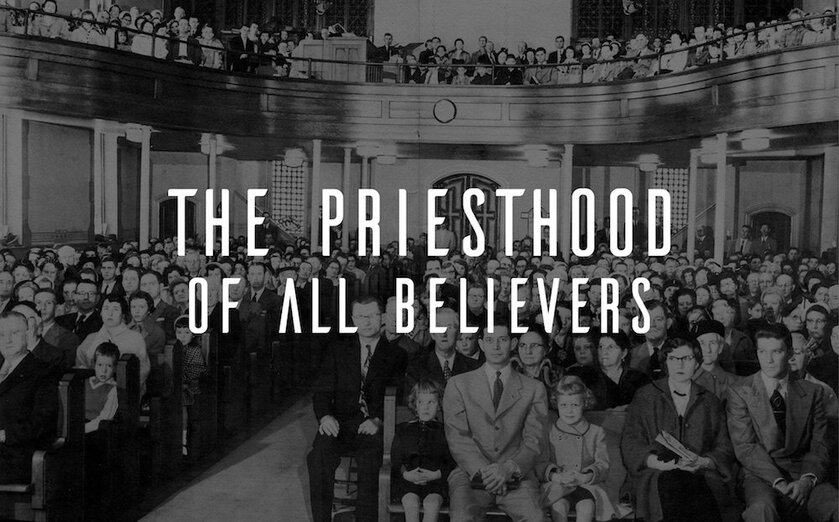Standing Firm in Faith Amid Opposition: Shining Brightly for Christ, Even in Sacrifice
Acts 6:8-15
And Stephen, full of grace and power, was doing great wonders and signs among the people. Then some of those who belonged to the synagogue of the Freedmen (as it was called), and of the Cyrenians, and of the Alexandrians, and of those from Cilicia and Asia, rose up and disputed with Stephen. But they could not withstand the wisdom and the Spirit with which he was speaking. Then they secretly instigated men who said, "We have heard him speak blasphemous words against Moses and God." And they stirred up the people and the elders and the scribes, and they came upon him and seized him and brought him before the council, and they set up false witnesses who said, "This man never ceases to speak words against this holy place and the law, for we have heard him say that this Jesus of Nazareth will destroy this place and will change the customs that Moses delivered to us." And gazing at him, all who sat in the council saw that his face was like the face of an angel.
Stephen is a significant figure in the early Christian church. He was one of the first anointed deacons and later recognized as the church’s first martyr. Stephen is singled out as "a man full of faith and of the Holy Spirit" (Acts 6:5), indicating his spiritual maturity and prominence among the seven deacons. This suggests he was not only a servant in practical matters but also a gifted leader with a powerful ministry, possibly including miraculous acts akin to those of the apostles. Stephen’s name is Greek (Stephanos, meaning “crown” or “wreath”), common among Hellenistic Jews. This suggests Stephen was part of the Greek-speaking Jewish diaspora.
The Grecian culture had become an influential power in the early days of the Church. And this "Hellenistic" culture began to be in conflict with the Hebrews. All seven chosen men, including Stephen, have Greek names, implying they were likely Hellenists tasked with representing and serving these Hellenistic Jews. As a Hellenistic Jew, Stephen would have been familiar with their Greek-influenced culture and synagogue practices, making him a natural target for their debates.
The "synagogue of the Freedmen" (Acts 6:9) may refer to Jews or their descendants who were freed from slavery or had Roman citizenship, hailing from regions like Cyrene (North Africa), Alexandria (Egypt), Cilicia (Tarsus, Paul’s hometown), and Asia (modern-day western Turkey). Church tradition, particularly in the Eastern Orthodox and Roman Catholic churches, venerates Stephen as a protomartyr. His feast day, December 26, is widely celebrated. Some traditions speculate he was among the seventy disciples sent out by Jesus (Luke 10:1), though this is not biblically confirmed.
And so, it's obvious from the scriptural accounts, Stephen was filled with faith, courage, and wisdom. He was also obviously filled with the Holy Spirit. Facing false accusations and a hostile council, Stephen remained steadfast, his face radiating divine peace (Acts 6:15). This courage stemmed from his trust in God and the Spirit’s presence. His spiritual vitality empowered his ministry and sustained him in this persecution. And he was apparently gifted with wisdom and discernment. His opponents couldn’t withstand his Spirit-inspired wisdom (Acts 6:10), reflecting both intellectual sharpness and spiritual discernment.
Stephen’s life and death exemplified how to stand firm in faith amid opposition, inspiring early Christians facing persecution. It would be easy to imagine that his death was a great loss for the early church, but it's really difficult to say. It's possible that this faithful Spirit-filled minister, were he to live on, would have accomplished great acts among the Church. We will never know, but I think God arranged for this entire event to take place. God blessed him with wisdom, discernment, intellect, preaching, and great faith. And then poured him out into the synagogues to preach his amazing sermon and then die for that faith. He shined brightly, and then his light went out, but did it? His sacrifice lives on. His story goes on. As a Greek-speaking Jew, Stephen’s ministry and theology laid the groundwork for the gospel’s spread beyond Judea. His emphasis on God’s universal presence (Acts 7:48-50) aligned with the inclusive vision later championed by the apostle Paul. His ministry continues even today in this devotion. Stephen’s life and death exemplified how to stand firm in faith amid opposition, inspiring early Christians facing persecution. His martyrdom, while tragic, sparked the scattering of believers (Acts 8:1-4), leading to the gospel’s spread to Samaria and beyond. There is a half-life to ALL ministry. A continuation of the teachings and the example. And God does that. That's God not letting his Word go out in vain.
Stephen’s journey illustrates that God’s calling is multifaceted and sovereign. Some people are called to give literal food and some are called to give spiritual food. Stephen was anointed by men for service to the community of believers, God called him to give his testimony and ultimately his life for the Word of God. Whatever God calls anyone to be is what God has determined they should be.
Our job is to be faithful in whatever God has called us to do. Often, as with Stephen, God expands our calling beyond our initial expectations, weaving together service, witness, and sacrifice for His glory. Stephen was faithful in this. He exemplified being a servant. The key is faithfulness. Stephen didn’t choose his path of persecution or martyrdom, but he embraced God’s will with trust, relying on the Holy Spirit to guide his words and sustain his spirit. Whatever God calls us to; whether serving quietly or speaking publicly, our responsibility is to be faithful in it, trusting that God has determined our role for His redemptive purposes.
Stephen's life reminds us that God’s plans often surpass our understanding, using even our sacrifices to advance His kingdom. As I said earlier, our task is to obey, serve, and trust, knowing God’s Word never returns void (Isaiah 55:11).
Reflect On This:
How can you trust God’s plan today, even when your calling or circumstances feel uncertain?
Remember, our role is to obey, serve, and trust, resting in the assurance that God is weaving our faithfulness into His greater story. Wherever God sends, go. Whatever God asks, you do it. Whenever God calls, you answer.
When I first got involved in my faith...
(This is how I view my life of faith, once I had faith but didn't know or care to know, now I do care and am involved in that faith. I want it now, I didn't want it before. I heard the call through all of it. God has been whispering my name for as long as I can remember. In the beginning God's call/voice confused me, I wasn't able to receive him. Now I can't appreciate Him enough to suit me. Now I want Him. But the truly amazing thing about this whole thing is that God WANTED me. God called my name, whispered really. And after a very long time of rebellion, I finally found His hearing.)
...I was receiving and recognizing many gifts of information and wisdom. The first gift was great faith. And I think that was significantly vital to how I received other gifts. I don't think one can receive wisdom, a word from God, a testimony, or revelation if they don't first have great faith. I can argue that you don't need to have great faithfulness to receive these gifts, but I do believe that when you're faithful, your portion will be great in God's grace. But at the end of the day, faith is the necessary first gift for those who go on to faithfulness.
In our focus today, we see Stephen being used by God. And his life illustrates how faith opens the door to receiving God’s grace and gifts. And as I've said, the first and vital gift, faith, is the key that unlocks that wisdom, revelation, and testimony.
But what is this "faith" thing. And what is this "faithful" thing. In Stephen's case it was waiting tables. He was ordained to serve food to his fellows. This man of great faith, intellect, power, wonders, and testimony was in food service as his portion of the ministry of the church. He expressed his faith in service. Stephen was ordained to serve food to widows in the early church, a humble task of waiting tables. Yet, this same man, described as "full of grace and power" (Acts 6:8), performed wonders, spoke with unassailable wisdom, and gave a testimony that cost him his life.
Faith, in the biblical sense, is a deep trust in God, His character, promises, and plan. Sometimes those plans seem like they aren't what we might have wanted or expected. Faith is believing God is who He says He is and will do what He says He will do, even when circumstances are unclear or challenging.
Hebrews 11:1 defines it as,
"the assurance of things hoped for, the conviction of things not seen."
For Stephen, faith was trusting in what God sees. Trusting in God’s call to serve humbly while also embracing the Spirit’s power to proclaim Christ boldly.
Faithfulness is the active expression of that gift of faith through consistent obedience and service. It’s living out our trust in God by doing what He calls us to, whether big or small, with devotion and perseverance. Faithfulness is faith in action, showing up, serving, and trusting God with the outcome. Even if it means feeding widows. Stephen’s faithfulness was evident in his willingness to wait tables and his courage to testify before the Sanhedrin, both flowing from his trust in God.
What I learned early on was, we are supposed to give faith our best. Be ready to be used. And having once learned God's will for your life, it's not for you to leave it left undone. Stephen’s journey illustrates for us the kind of faith that holds nothing back. He didn’t see his role as menial but embraced it with faith, trusting God’s purpose. The takeaway for you today is, faith isn’t passive; it’s an active commitment to trust God and act on His call. Once you discern God’s purpose for you, commit to seeing it through, relying on the Holy Spirit for strength, as Stephen did.
Prayer:
Heavenly Father, thank You for Stephen’s example of active faith and unwavering commitment to Your will. Help me to give you and Your Church my best. Help me to stay ready for Your use, and faithfully fulfill Your purpose for my life. Fill me with Your Spirit to trust and obey Your Word, no matter the cost. In Jesus’ name, Amen.




















